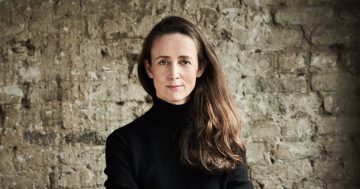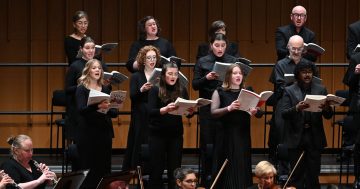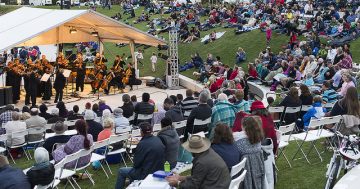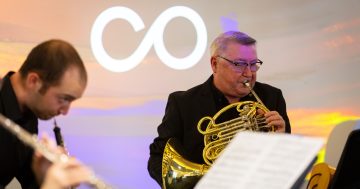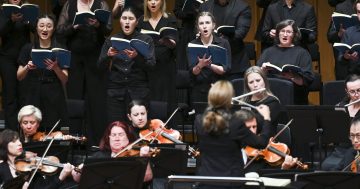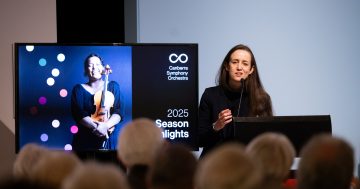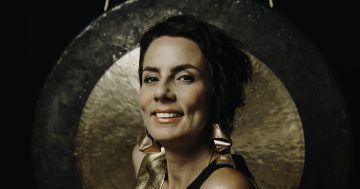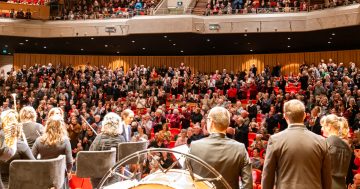
Conductor Sam Weller is the fresh new face of Australian classical music. Photo: Kirsten van Santen.
The man that will hold the baton at the next Canberra Symphony Orchestra concert, War and Peace, at Llewellyn Hall, won’t be your average conductor.
For a start Sam Weller is only 24, his chosen instrument is a modern one – the saxaphone, and in 2016 he founded his own ensemble, the highly praised Ensemble Apex in Sydney.
He also has firm views about making the classical music experience an easier one for young people like himself, an imperative given the older demographic that tends to dominate concert halls, including here in Canberra.
Weller is promising a fresh take on a work that has been performed countless times and is a giant of the repertoire – Beethoven’s Symphony No. 3, the Eroica, written with the hope that Napoleon Bonaparte would usher in a new era for Europe.
It will be the first time he tackles what he acknowledges is a daunting task, but he won’t shy away from putting his own stamp on the work, and the CSO can expect a great deal of experimentation in rehearsals.
“That’s what I should be offering as a young musician,” Weller told Region.
“I’m going to be true to myself and then I want the audience to form their own judgement of the piece, and I hope my musical background and my musical knowledge is able to create a convincing picture of what I think Beethoven should be.”
He wasn’t about to give away all his secrets or spoil what he hopes will be something fresh and unique for the audience but it comes down to blending both the historical context and Weller’s own modern experience.
“For the last two years, I’ve been studying in Amsterdam, and one of my teachers, Candice Montgomery, was really focused on knowing the context of the music down to the art that was being painted at the time, the books that were being written, what was being sold in the market, around the corner of the street, but knowing exactly where the seeds of the composition are sown and then once you understand that, I like to apply those ideas into a modern day society,” he said.
“I like to add my own practice as a saxophone player by trade, as the majority of the music that I play is modern, so I come from that school of training. So we then fuse antiquity with the modern and I hope that creates something fresh.
“The key thing for me is that anything we do it has to be clear, the reason needs to be clear to the audience, we need to be telling something to the audience.”
Also on the bill will be Richard Strauss’s work for solo strings, Metamorphosen, often programmed with the Eroica, because the composer references the symphony’s second movement.
Weller said that he always found something new in Beethoven and the same could be said for Metamorphosen.
“Every time I go back to a Beethoven score, I find something new, something more interesting, or a new level,” he said.
“There’s always a new level of depth to uncover, but that’s very true in the Strauss as well. They’re very similar as the scope of both those works are quite grand.
“I recently did the Alpine Symphony [by Strauss] with another orchestra and this Metamorphosen has just as much detail as the Alpine Symphony which is for 130 players, but this is condensed down to solo strings. It’s quite a remarkable piece of music.”
And a great opportunity to showcase the CSO strings section under concertmaster Kirsten Williams.
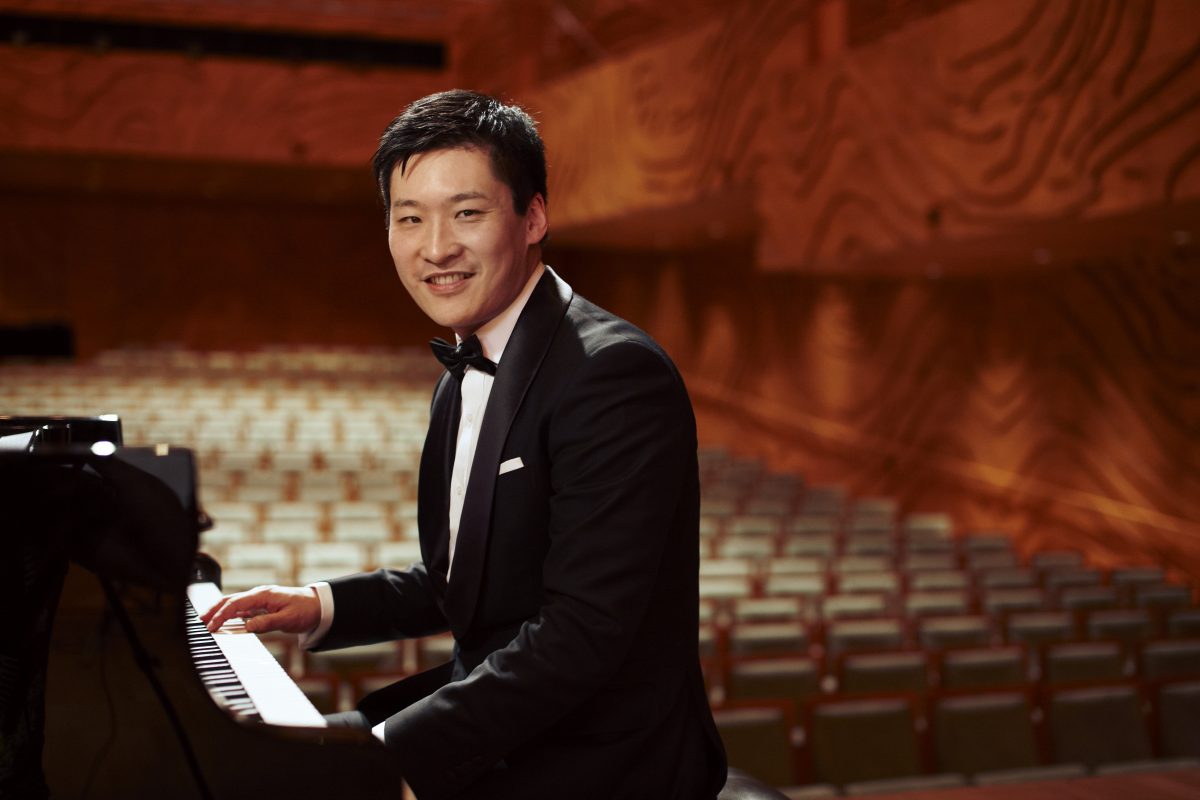
Kristian Chong: “an amazing pianist, full of flair and energy”. Photo: John Tsiavis.
The feature soloist will be pianist Kristian Chong, who will perform the concert’s Australian offering, Malcolm Williamson’s Piano Concerto No. 2.
Weller said it was a piece that came to him completely new but he was really excited to be doing it.
“There’s something very Stravinskyian about the music that he writes, but also it’s very boppy as well. It feels very current,” he said.
Weller was also looking forward to working with Chong, who he described as an amazing pianist, full of flair and energy.
He was keen to discuss what he, the orchestra and Chong would do with what was a relatively unknown Australian work from 60 years ago that deserved to be elevated in audience’s minds.
“So we’ll sit down before we have our first rehearsal. We’ll talk about what we want to say with this music,” Weller said.
“We have a duty to promote the work as well. So how we can do that?”
Programming it spoke volumes for the CSO commitment to home-grown composers, something that was unparalleled in Australian music, Weller said.
The young conductor is passionate about attracting younger audiences and refashioning the concert experience so it is more accessible and the music can live and die on its own merits not preconceptions.
That includes making simple changes to enhance the audience experience, such as pre-concert talks and using social media, including video, to promote the music.
“I believe it’s going to take a widespread effort from organisations across Australia and also the world,” Weller said.
“We have an ingrained sort of premise that classical music is for older elite audiences and to shift that we all need to make an effort to start changing the perception.
“Because the number one key thing that I found from my research is that it’s not the music that’s been performed, it’s that younger audiences don’t feel welcome at the concert because they feel they lack pre-required knowledge to attend these concerts.
“So it’s all about facilitating a safe space or a very welcomed space, for a new listener, so that they can just enjoy the music unrestricted or unbothered by the fact that they might not know enough about the repertoire that we really love.”
The CSO will perform War and Peace on Wednesday 14 September and Thursday 15 September. Tickets are from $30. For more information visit the CSO website.












